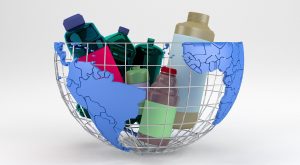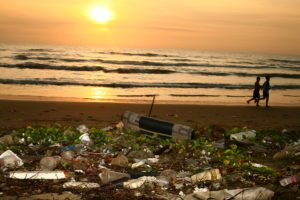The circular economy is leading to less talk about garbage and making it more about waste, since it is possible to recycle them in the production of new goods or as energy fuel. Paradoxically, the pandemic has not only not stopped this trend, but has increased it, and today, citizens seem to be more concerned about the sustainability of the planet.
In the case of Spain, official data affirm that, in 2020, over 18 kg of waste were deposited in some of the approximate 400,000 yellow containers that are distributed throughout the country, representing an increase of 8.5% compared to the previous year’s figures. Important data to consider as for months the activity was restricted to the maximum to avoid the increase in infections, which caused a drop in consumption and, with it, the production of waste.
Despite the pandemic, the volume of waste in yellow containers grew by 8.5% in 2020 in Spain
At a European level, the trend is very similar. This is underlined by the report “Who cares, who does?” prepared by Kantar, where it states that the number of ecoactive citizens concerned about the environment and the footprint that human beings leave went from 51% in 2019 to 59% in 2020. Comparing this data with the reality in other places, the importance of the ‘green philosophy’ in the Old Continent is even more sustained, as in the United States ecoactive people barely account for 52% of the total, while in Asia they remain at 42%.
Why sustainability is more of a concern
This greater culture of concern for the planet has its reason for being, among other reasons, in the profound impact that the health crisis has caused among many Europeans. In fact, this shock has made them realize that the need to take care of the planet is real and that one of the best ways to be proactive and achieve it is through recycling.
Europeans are concerned about the environmental deterioration of discarded masks and gloves
On the other hand, the environmental deterioration caused by single-use masks and gloves, abandoned in streets, parks or rivers, has also caused a great social impact. A shocking situation for many citizens who have witnessed how these objects have contributed to saving thousands of lives, but that a serious lack in the collection and disposal mechanism is causing a harmful effect, in this case, on the environment. Reports such as ‘Impacts of COVID-19 on single-use plastic in Europe’ s environment’, developed by the European Environment Agency, attest to this.
Other news of interest: Social networks and their influence on environmental awareness
Returning to the case of Spain, there is an increasing number of consumers who are prioritizing the interests of the planet over those of the economy, and this despite the fact that the country has been one of the most affected by the global slowdown in terms of increase in unemployment, closure of companies and falls in gross domestic product (GDP). This is pointed out by a survey of Every Can Counts among citizens of 14 European countries.
The drive for recycling
In fact, around two out of every three participants also indicate that private innovation in recycling should be supported with greater emphasis from the public sphere, as a way for society to contribute more proactively in favor of the planet.
At present, there are different companies in the world that work hard to improve quality of life through recycling, promoting the production of new active useful waste. RepetCo is a good example of this, as, through its own patented and environmentally friendly system, it can recycle all kinds of PET/PE multilayer food packaging of post-consumer origin. This process allows to generate rPET pellets and rPE that can be re-used in the food industry as multilayer PET/PE sheets trays and containers.







